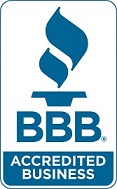GC 550
GRIEVING CHILDREN
AIHCP BLOG: Please visit our interactive web blog. Here you will find frequently added information on our programs, articles and news by practice speciality, and much more. Register and become a part of our professional health care community.
cOURSE iNFORMATION
This course provides a way for grief counseling professionals to be informed on the dynamics and nuances of the delicate subject of children and grief. The text incorporates anecdotal accounts and narrative excerpts as well as references to published studies. A wide array of related issues are discussed including developmental distinctions of childhood, differential grief effects contingent upon the type of death, guidelines for tending to children’s grief, a special focus on aggrieved children in the school setting, and other topics of concern. A host of counseling/therapeutic suggestions are offered based on the author’s clinical practice. Dyregrov himself extends that this book will hopefully “give the reader a fundament of knowledge about children’s grief reactions and how they can be helped” (p. 14). Course Code: GC 550. Contact hours of education: 30.
This course is particularly designed for those who are already or were recently certified by the American Academy of Grief Counseling, and are now seeking Certification as a Certified Grief Counselor in Child/Adolescent Grief.
Instructor/Course Author:
Paul J. Moon, Ph.D., M.Ed., B.A., FAAGC, GC-C
Certified Grief Counselor/Fellow AAGC|
Resume: access here
Email: pjessiemoon@gmail.com
TIME FRAME: You are allotted two years from the date of enrollment in this course to complete all five (5) of the required courses in this program for Child/Adolescent Grief Counseling. There are no set time-frames, other than the two year allotted time.
TEXTBOOKS: There is one required book for this course:
Dyregrov, A. (2008). Grief in children: A handbook for adults (2nd ed.). London, UK: Jessica Kingsley Publishers. ISBN: 978-1-84310-612-8
Link to Purchase on Amazon.com: click here
GRADING: You must achieve a passing score of at least 70% to complete this course and receive the 30 hours of awarded continuing education credit. There are no letter grades assigned. You will receive notice of your total % score. Those who score below the minimum of 70% will be contacted by the American Academy of Grief Counseling and options for completing additional course work to achieve a passing score, will be presented.
BOARD APPROVALS: The American Institute of Health Care Professionals (The Provider) is approved by the California Board of Registered Nurses, Provider number # CEP 15595 for 30 Contact Hours. Access information
This course, which is approved by the Florida State Board Of Nursing (CE Provider # 50-11975) also has the following Board of Nursing Approvals, for 30 contact hours of CE:
The American Institute of Health Care Professionals Inc: is a Rule Approved Provider of Continuing Education by the Arkansas Board of Nursing. CE Provider # 50-11975.
The American Institute of Health Care Professionals Inc: is a Rule Approved Provider of Continuing Education by the Georgia Board of Nursing. CE Provider # 50-11975.
The American Institute of Health Care Professionals Inc: is a Rule Approved Provider of Continuing Education by the South Carolina Board of Nursing. CE Provider # 50-11975.
The American Institute of Health Care Professionals Inc: is a Rule Approved Provider of Continuing Education by the West Virginia Board of Examiners for Professional Registered Nurses. CE Provider # 50-11975.
The American Institute of Health Care Professionals Inc: is a Rule Approved Provider of Continuing Education by the New Mexico Board of Nursing. CE Provider # 50-11975.
Online Classroom Resouces and Tools
* Examination Access: there is link to take you right to the online examination program where you can print out your examination and work with it. All examinations are formatted as "open book" tests. When you are ready, you can access the exam program at anytime and click in your responses to the questions. Full information is provided in the online classrooms.
* Student Resource Center: there is a link for access to a web page "Student Resource Center." The Resource Center provides for easy access to all of our policies/procedures and additional information regarding applying for certification. We also have many links to many outside reference sites, such as online libraries that you may freely access.
* Online Evaluation: there is a link in the classroom where you may access the course evaluation. All students completing a course, must, without exception, complete the course evaluation.
* Faculty Access Information: you will have access to your instructor's online resume/biography, as well as your instructor's specific contact information.
* Additional Learning Materials: some faculty have prepared additional "readings" and /or brief lecture notes to enhance your experience. All of these are available in the online classrooms.
Course Objectives: Upon successful completion of this course, you will be able to:
- Identify grief reactions in children of varying ages
- Discuss how a diversity of death types may present qualitatively different grief challenges to children
- Associate generally understood developmental level dynamics to grief representation in children
- Define factors that may complicate grief for children
- Understand gender complexities concerning children and grief
- Explore guidelines of effectively tending to grieving children and children in crisis
- Identify particular needs provincial to grieving children
- Understand the role of the school and other social venues in relation to children’s grief experiences
- Discuss issues concerning therapy and support groups for aggrieved children
- Identify important aspects of self-care for the counseling professional
Course Content:
A brief abstract of content:
- Children’s reactions to grief and crisis
- Different types of death (and associated dynamics/issues)
- Death and crisis at different developmental levels
- Confounding factors that can complicate grief work
- Sex differences in children’s grief
- Caring for children in grief and crisis
- Guidelines for tending to bereaved children’s needs
- Handling death in school and other children-related venues
- Grief therapy for children
- Bereavement groups for children


